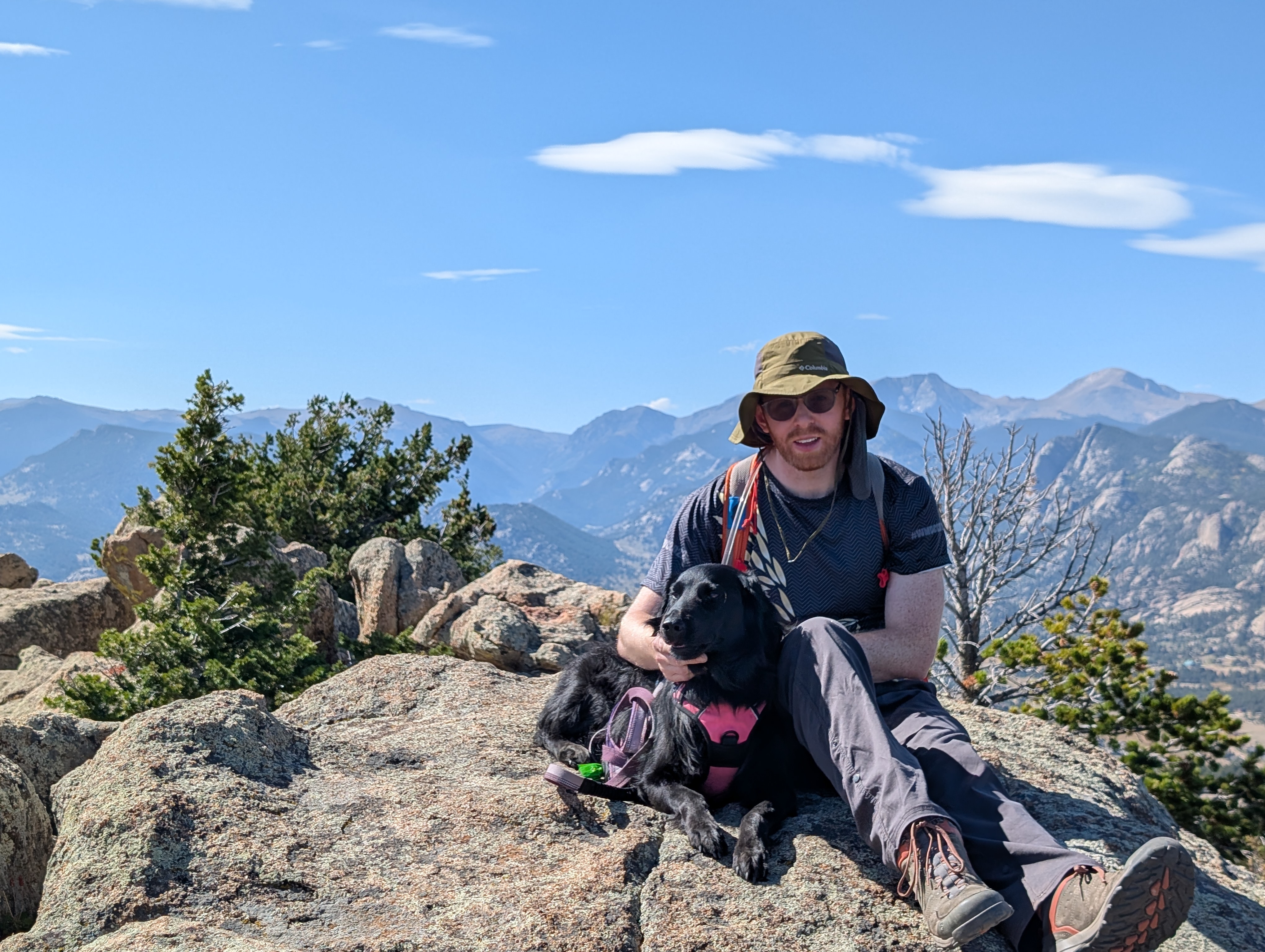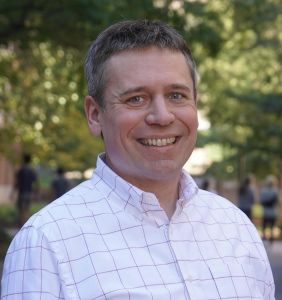James Custer’s Ph.D. ‘Scientific Bet’ Launches an Unexpected Career in Clean Energy Innovation

James Custer, a Ph.D. graduate of the Department of Chemistry, is working on several major projects across the deep tech and clean tech ecosystems in Colorado.
November 21, 2025 I By Dave DeFusco
When James Custer arrived at UNC-Chapel Hill to begin his Ph.D. in chemistry, he didn’t know he was about to launch a career that would take him from high-stakes scientific discovery to global clean energy negotiations, and eventually to the front lines of climate technology and entrepreneurship. But he did know one thing about himself—he was curious. Deeply, relentlessly curious.
That curiosity has been the thread running through Custer’s life and career. “When I chose to study chemistry in undergrad, I didn’t really know what I was doing,” he said. “I figured if I could understand chemistry from the atoms up, I could build the rest from there.”
What started as an instinct gradually grew into a scientific lens that shifted from chemistry to materials science, then expanded even further into technology commercialization, business strategy, startups and now climate tech leadership. UNC, he said, was the place where that approach took shape.

“My education at UNC helped develop my whole way of problem-solving,” he said. “It gave me the confidence to be curious about anything, even things totally outside my domain.”
Custer’s doctoral research, completed under Professor James Cahoon, was a turning point. His work in materials science led to a first-author paper in the journal Science, a rare achievement for a graduate student and one that came with risk.
“My Ph.D. was kind of a scientific bet,” he said. “Publishing in Science is extremely difficult. If that paper hadn’t been accepted, things would have turned out very different.”
The gamble paid off, and so did the years of struggle behind it. Cahoon’s mentorship was key. “Jim was great for me,” said Custer. “He had the right balance of being available while also giving you the space to struggle and grow.”
Even while refining his scientific skills, Custer realized the lab wasn’t where he wanted to stay. He was fascinated by the idea of technology leaving the university and entering the world. “Academic work is incredibly important, but the timelines can be very long. I found myself wanting to influence impact on a shorter timeframe.”
That curiosity pulled him toward entrepreneurship. Through UNC’s Kenan-Flagler Business School, he completed a certificate in entrepreneurship and technology commercialization—a three-year program he describes as a “mini MBA for STEM graduate students.” There he worked with startups ranging from a kombucha company to a photonics spinout from NC State. It was his first real taste of building something new.
That training led directly to his first role after graduation at 8 Rivers, a climate and clean energy technology company. Custer joined as chief of staff and quickly became deeply involved in business strategy and global partnerships. He helped secure $100 million in funding, led work in hydrogen and direct air capture, negotiated international deals and advised on projects around the world.
“I treated the business side the same way I treated science,” he said. “Be curious, ask good questions and learn how things work.”

Today, Custer is applying that same mindset to plastics recycling and deep tech entrepreneurship. Through Columbia University’s ClimateTech Expertise Network, he serves as fractional chief commercial officer for Estercycle, a company developing a next-generation recycling technology. Traditional mechanical recycling can only reuse plastics a few times before the material degrades. Compostable plastics rarely get composted. Estercycle’s approach can take a mixed stream of traditional and bio-based plastics and break them down to their basic building blocks, producing material that behaves like new plastic and can be recycled again and again.
“It solves several problems at once,” said Custer. “It reduces emissions, cuts down on sorting, makes recycling economical and keeps valuable materials in the supply chain.”
At the same time, Custer is building Deep Tech Trailhead, a new open-access resource mapping all the labs, investors, incubators and partners that support deep tech companies across Colorado. “When I moved to Colorado, it felt like excellent resources existed, but they were hard to navigate at times,” he said. “Some people were building maps and lists, but there was no public-facing, deep-tech ecosystem map. I thought, why not just make something that helps everyone?”
For students considering a path outside traditional academia, Custer offers simple advice: show up. “Networking, more than anything else,” he said. “Just go to things that sound even vaguely interesting. My internship at 8 Rivers came from a random event I went to three years before. Most career transitions come from loose connections, not close friends.”
Looking back, he credits UNC for giving him the mindset that underlies all of it: curiosity, resilience and a willingness to push into the unknown.
“UNC taught me how to think, how to ask questions and how to build something new,” said Custer. “Everything since has grown from that.”

